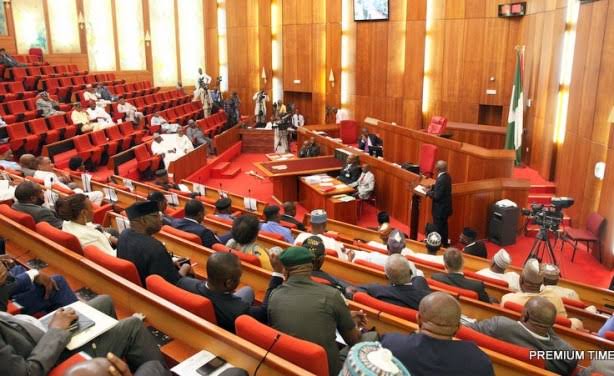Approved Nigerian Senators Salary Structure & Allowances (2026)
The debate of how much Nigerian senators are paid is frequently posed by many concerned citizens in the country. This is in view of the high amount of money that these public officials are paid for.

In Nigeria, senators are highly esteemed public officials who are responsible for making and passing laws that govern the country. As part of their role, they receive salaries and allowances that are determined by the government.
This article will provide an in-depth analysis of the approved Nigerian Senators Salary Structure & Allowances. It will explore the components that make up their remuneration package, how it compares to other countries, and the controversies that surround the salaries and allowances of Nigerian senators. Additionally, the article will discuss the impact of these remunerations on the country’s economy and whether they are justifiable considering the current economic climate in Nigeria.
SALARY STRUCTURE OF NIGERIAN SENATORS (2026)
Nigeria, like many other countries, has a bicameral legislative system consisting of the Senate and the House of Representatives. The Senate, in particular, is the upper chamber of the National Assembly and is made up of 109 senators representing the 36 states and the Federal Capital Territory (FCT).
The salary and allowances of Nigerian senators have been a subject of controversy and public scrutiny in recent years. This is due to the high amount of money they receive in salaries and allowances compared to the average Nigerian worker.
According to reports from the Revenue Mobilisation Allocation and Fiscal Commission (RMAFC), as of 2023, Nigerian senators are receiving a monthly salary of approximately ₦29.5 million Naira ($74,000 USD) per annum. This means that their monthly salary is approximately ₦2.5 million Naira ($6,200 USD) per month.
In addition to their basic salary, Nigerian senators are entitled to various allowances and benefits, including constituency allowance, accommodation allowance, vehicle allowance, entertainment allowance, and personal assistants.
The constituency allowance is a sum of money that each senator is given to carry out projects in their respective constituencies. The amount is approximately ₦100 million Naira ($250,000 USD) per senator per year. The accommodation allowance is a sum of money that each senator is given to rent an apartment or pay mortgage for their housing.
The amount is approximately ₦4.5 million Naira ($11,250 USD) per senator. The vehicle allowance is a sum of money that each senator is given to purchase a vehicle of their choice. The amount is approximately ₦8 million Naira ($20,000 USD) per senator.
Furthermore, Nigerian senators are entitled to employ personal assistants and domestic staff, whose salaries are paid for by the government. They are also entitled to an entertainment allowance of approximately ₦1.2 million Naira ($3,000 USD) per senator.
The salary and allowances of Nigerian senators have been a subject of controversy and public scrutiny in recent years. While they are entitled to high remuneration as lawmakers, some Nigerians believe that their salaries and allowances are excessive, given the level of poverty in the country. It remains to be seen whether there will be any changes to the remuneration of Nigerian lawmakers in the future.
ALLOWANCES OF NIGERIAN SENATORS (2026)
In addition to their basic salary, Nigerian senators are entitled to various allowances and benefits. These allowances are meant to cover their official and personal expenses. Some of the allowances enjoyed by Nigerian senators include:
- Constituency Allowance: This is a sum of money given to senators to carry out projects in their respective constituencies. The amount is approximately ₦100 million Naira ($250,000 USD) per senator per year.
- Accommodation Allowance: This is a sum of money given to senators to rent an apartment or pay mortgage for their housing. The amount is approximately ₦4.5 million Naira ($11,250 USD) per senator.
- Vehicle Allowance: This is a sum of money given to senators to purchase a vehicle of their choice. The amount is approximately ₦8 million Naira ($20,000 USD) per senator.
- Wardrobe Allowance: This is a sum of money given to senators to purchase clothes and other personal items. The amount is approximately ₦1.2 million Naira ($3,000 USD) per senator.
- Entertainment Allowance: This is a sum of money given to senators to entertain guests and carry out official functions. The amount is approximately ₦1.2 million Naira ($3,000 USD) per senator.
- Personal Assistants: Nigerian senators are entitled to employ personal assistants and domestic staff, whose salaries are paid for by the government.
- Foreign Travel Allowance: This is a sum of money given to senators to cover their expenses when traveling outside the country on official assignments. The amount varies depending on the country visited and the duration of the trip.
It is important to note that the exact amounts of these allowances may vary from time to time, and they are subject to review by the Revenue Mobilisation Allocation and Fiscal Commission (RMAFC).
The high allowances enjoyed by Nigerian senators have been a source of concern for many Nigerians. Critics argue that these allowances are excessive and wasteful, given the level of poverty in the country. However, proponents of these allowances argue that they are necessary to enable lawmakers to carry out their duties effectively and efficiently.
The allowances of Nigerian senators are meant to cover their official and personal expenses. While some Nigerians believe that these allowances are excessive, others argue that they are necessary for effective lawmaking. Regardless of the debate, it is important for the Nigerian government to ensure that public funds are used judiciously and for the benefit of all citizens.
CONCLUSION
The Nigerian Senators Salary Structure & Allowances remain a controversial topic in the country, with many Nigerians questioning the justification of the huge amount of money paid to these public officials. While it is essential to ensure that public officials are well-remunerated for their services, the amount paid to Nigerian senators raises concerns about equity, accountability, and transparency.
There is a need for the Nigerian government to review and adjust the remuneration package for senators to reflect the economic reality of the country and the living standards of the average Nigerian. Ultimately, the goal should be to ensure that public officials, including senators, are adequately compensated, while also ensuring that the country’s resources are allocated appropriately to promote the well-being of its citizens.

